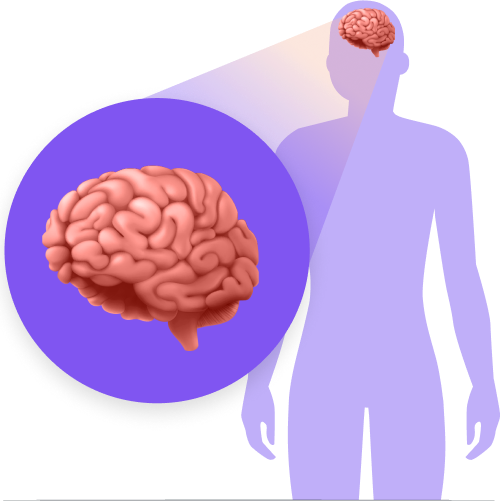- Home
- Topics
- Smoking and your health
- Smoking and cancer
How smoking affects the body
More than 7000 chemicals are released in tobacco smoke. Sixty-nine of these chemicals are known to cause cancer.
How can smoking cause cancer?
Inside every cell in your body is something called DNA. DNA is like a set of instructions that tells your cells how to grow, work and stay healthy.
When you breathe in tobacco smoke, harmful chemicals enter your body. Your body tries to get rid of these chemicals, but in the process, some by-products are made that can damage your DNA.
If DNA gets damaged, your cells might not work the way they should. Normally, your body can fix this damage. But tobacco smoke can make it harder for your cells to repair themselves.
Over time, the damage can build up. This can cause the cells to change or grow in a way they shouldn’t. These changes are called mutations, and they can lead to cancer.
So, smoking doesn't just affect your lungs - it can also damage your cells at a deeper level and increase your risk of serious diseases like cancer.
Lung cancer
The sooner you quit smoking, the better your chances of having a long and healthy life. After 10 years of being smoke-free, you’ll have avoided around 40% of the risk of ever getting lung cancer.
If early-stage lung cancer has been diagnosed, quitting smoking can reduce the chance of tumours progressing.
If you need to have chemotherapy or radiation treatment, you are likely to have fewer side effects and complications if you no longer smoke.
Other cancers
Lung cancer is the disease most commonly associated with smoking tobacco but it’s not the only one. In fact, tobacco smoke is linked to 16 forms of cancer.
Along with lung cancer, smoking tobacco can lead to cancer of the:
- Mouth, throat, nose and sinuses
- Oesophagus
- Bladder, kidney and uretera
- Pancreas
- Stomach
- Liver
- Cervix and ovary
- Bowel
- Blood
Create a personalised Quit plan that will support you while you quit.
